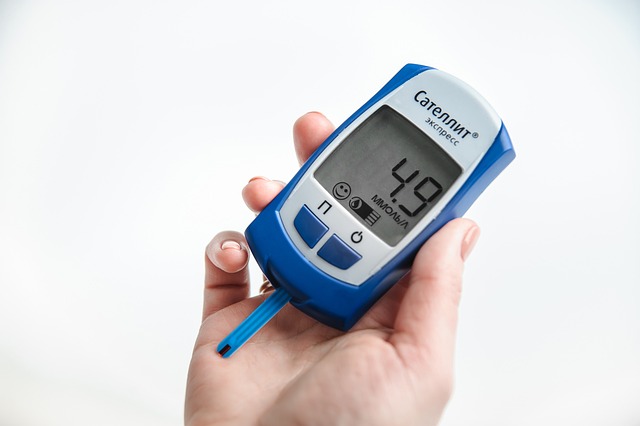What Your Baby's High Birth Weight Can Mean for Your Health
In general, parents want their babies to have a higher birth weight. Weighing more at birth can mean the baby is full-term or fully developed, and less likely to need immediate medical intervention.
Bigger is better, but only to a point. Babies that weigh more than a certain amount at birth are considered to have fetal macrosomia, and that can have health implications for the mother and the baby. This is what you should know about health risks and how to stay healthy if you had gestational diabetes or a high birth weight baby.
Basics of Fetal Macrosomia
Fetal macrosomia, or high birth weight, occurs when the baby weighs more than 8 lb., 13 oz. 9 (4,000 grams) at birth. This happens in nearly 1 of 10 babies. Babies over 4,500 grams (9 lb., 15 oz.) have higher risks.
Fetal macrosomia can occur because of genetics or lifestyle. These are some risk factors for excessive birth weight.
- Higher than recommended weight during pregnancy (25-35 lb. for women who are normal weight before pregnancy, 15-25 lb. for overweight, and 10-20 lb. for women who were obese before pregnancy).
- Type 1 or type 2 diabetes in the mother (diabetes that developed before pregnancy).
- Gestational diabetes (diabetes that develops during pregnancy).
- Maternal obesity.
- Maternal age over 35 years.
- Previous pregnancies, especially previous fetal macrosomia.
- Overdue birth.
Importance of Mother's Health after Fetal Macrosomia
Delivery can be more difficult with a high birth weight baby, but let's say that all went well (thankfully) and seems like ancient history. That is especially true if you now have a baby or young child around and have little time to think about anything but right now, say, feeding the baby, changing diapers, or making sure your toddler is not about to destroy your home or eat the newspaper.
The thing is, your health as a parent is more important now than ever before, and a pregnancy ending in a high birth weight can be a sign that it is time to take charge. Many of the causes of high birth weight are linked to future health concerns, but these health risks can also be reduced with simple lifestyle changes, such as eating healthy.
Overweight and Obesity
What was your body mass index (BMI) before pregnancy? Did it put you in the normal weight, overweight, or obese category? What is your BMI now? Calculate it here!
If it is in the overweight (BMI 25 to 29.9 kg/m2) or obese (BMI over 30 kg/m2) category, excess weight may be putting you at risk for prediabetes, diabetes, hypertension, arthritis, sleep apnea, high cholesterol, and more.
Excessive Pregnancy Weight Gain
Did your pregnancy involve a series of cravings and the mentality of "eating for two?" If you and your baby were on a 9-month diet of foods such as ice cream, peanut butter, and bagels, there is a chance you may have been among the nearly half of American women who gain more than the recommended amount of weight during pregnancy. Some of those pounds can be tough to get back off, leaving mothers overweight or obese and at risk for chronic conditions.
Gestational Diabetes
Gestational diabetes is diabetes that is diagnosed during pregnancy in a woman who did not have it already or who only had diabetes in a previous pregnancy. Gestational diabetes can resolve (disappear) after delivery, though it does not always. Even if it does, gestational diabetes is a lifetime risk factor for diabetes.
Taking Care of Long-Term Health
After taking stock of risk factors such as extra weight and gestational diabetes, it may be time to learn more or take action. Small changes in lifestyle choices can help with weight loss and lower disease risk. Lark can help with these seemingly minor changes and put you on the path to better health. Lark can help with:
- Weight loss. Taking smaller portions, choosing more vegetables, and increasing fiber consumption are a few simple ways to increase fullness and lose weight. Each time you choose grilled chicken instead of crispy chicken, water instead of a soda, or shredded wheat instead of the same amount of granola, you are helping yourself lose weight. Lark can suggest minor changes throughout the day to establish new weight loss habits.
- Staying physically active. Finding and sticking to something you love can make it easier to make physical activity part of your regular routine. Lark can remind you to get active and help you track your progress.
- Eating healthier. What you eat affects weight and blood sugar, with certain foods promoting healthier weights, and other foods raising blood sugar or increasing the chance of weight gain. When you log your food with Lark, you can get instant feedback on your food, including suggestions on how you could improve your choices even more.
- Practicing self-care. Do you get enough sleep, practice meditation or other stress management techniques, and pursue a hobby that you love? These can all help with weight loss and blood sugar, not to mention help you feel better each day.
You may qualify for Lark Diabetes Prevention Program if you had gestational diabetes or are overweight or obese. Other Lark programs can guide you to healthier lifestyle choices, too. Being your healthiest self can help you be the best possible parent, and Lark is ready to help!











.webp)







